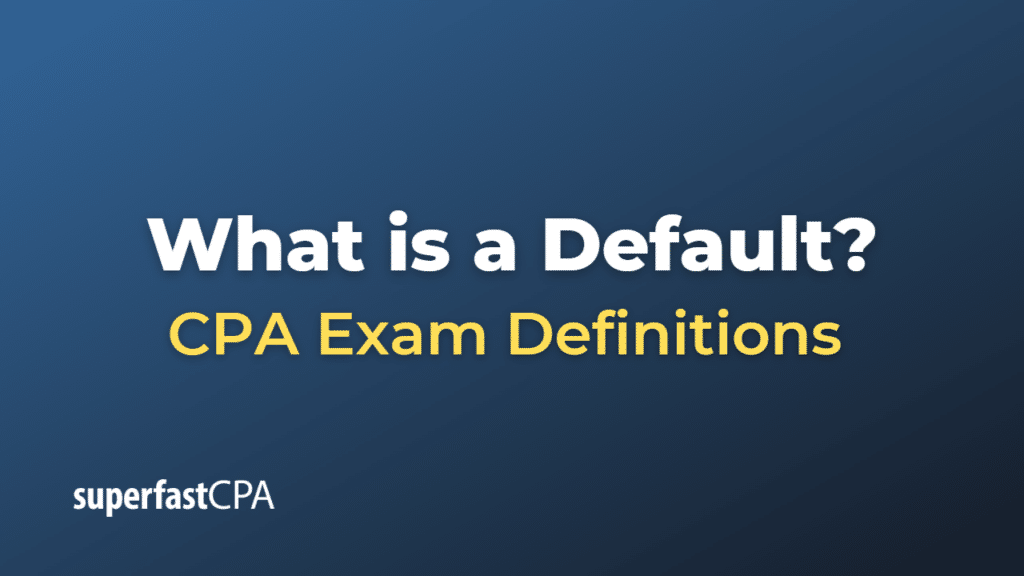Default
In the context of finance, a default occurs when a debtor is unable to meet the legal obligation of debt repayment. This typically involves not being able to make a required payment on a debt obligation on the due date.
Default can occur in various scenarios, including:
- Loans: If a borrower does not make a scheduled payment on a loan (such as a mortgage, car loan, or student loan), they are considered to be in default. The specifics of when a loan is considered to be in default can depend on the terms of the loan agreement.
- Bonds: If a bond issuer fails to make a scheduled interest payment or fails to repay the principal at maturity, the issuer is considered to be in default.
- Credit cards: If a credit card holder fails to make at least the minimum payment by the due date, they are in default.
The consequences of default can be serious and may include:
- The entire debt balance becoming due immediately (known as acceleration).
- Damage to the borrower’s credit score.
- Legal action by the lender to recover the debt, which could include seizure of assets in the case of a secured loan.
- Increased borrowing costs in the future.
In cases of sovereign debt (debt issued by a country), a default can lead to serious economic problems, both for the country that defaulted and for other countries and investors that hold that debt.
Example of a Default
Let’s take a look at an example of a default on a car loan:
Let’s say Jack took out a loan of $20,000 to buy a new car. According to the loan agreement, he is supposed to make monthly payments of $350 for 5 years. Everything goes well for the first two years, with Jack making his payments on time each month.
However, in the third year, Jack loses his job and struggles to meet his financial obligations. He misses three consecutive monthly payments on his car loan.
At this point, Jack’s lender considers the loan to be in default due to the missed payments. The lender can choose to take various actions such as:
- Acceleration: The lender could declare the entire loan balance due immediately. That means Jack would owe the remaining balance on his car loan all at once.
- Repossession: Since the car loan is a secured loan (the car itself is collateral), the lender could decide to repossess the car. The car could then be sold to help pay off the loan.
- Legal action: The lender could also take legal action against Jack to recover the unpaid debt.
- Damage to credit score: Jack’s credit score would likely decrease significantly because of the default, which would make it harder and more expensive for him to borrow money in the future.
Remember, defaults have serious consequences. It’s always important to communicate with lenders as soon as financial hardship arises to try and work out a possible solution or payment plan. In many cases, lenders prefer to work with borrowers to avoid default.













